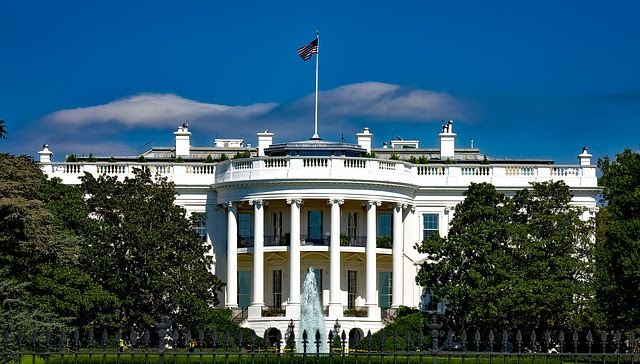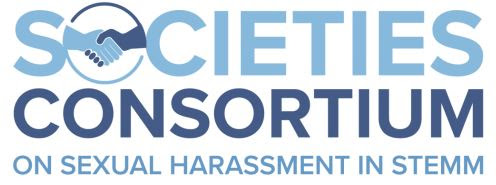FABBS News Highlights: March 15, 2019
Friday, March 15, 2019
(0 Comments)
Posted by: Psychonomic Society
|

Budget
Update
On March 11 the administration delivered a “skinny
budget” recommending cuts to research programs across the government. Typically shared the first Tuesday of February, the budget request was delayed and incomplete due to the 35-day partial government shutdown.
Here is what the administration requested for key agencies supporting behavioral and brain sciences:
- National Institutes of Health – $34.4 billion, a $4.94 billion (12 percent) cut from fiscal year (FY) 2019 budget of $39.3 billion
- National Science Foundation – $7.1 billion, a $975 million (12 percent) cut from $8.1 billion in FY 2019 final budget
- Institute on Education Sciences – $522 million, a $93 million (15 percent) cut from the FY 2019 final budget
While this budget recommends significant cuts, so did the past two budgets proposed by this administration. In both previous years, Congress passed increases for scientific research. The bigger concern for many advocates is how
Congress will handle the need to lift the budget caps set into place with the 2011 Budget Control Act. In the absence of a budget deal, nondefense discretionary budget would be reduced by $55 billion in FY2020. Members of Congress in both parties have expressed
support for raising the caps, as they have done several times with the Bipartisan Budget Acts in 2013, 2015, and 2018. The harder questions are likely to be how high to raise the caps and if they will maintain parity in increases to defense and non-defense
discretionary (NDD) spending.
Read more »
|
|
FABBS
Video Series on Cognitive Science in the Real World
FABBS is delighted to release the first of five short videos capturing ways in which cognitive science helps keep us safe and healthy. Understanding the mental processes and brain structures involved in acquiring, storing, and
using information is critical to training TSA agents; evaluating and improving patients who have suffered a stroke; improving driver safety; interpreting medical imaging; and many other everyday tasks that involve humans.
Paula Skedsvold, former executive director of FABBS, spearheaded this initiative. She paused to share with us what prompted their development: "One of the challenges scientists and science advocates often face is trying to describe
the importance of "basic" or "fundamental" research to public audiences -- and this includes members of Congress who set funding levels for research at places like the National Science Foundation. Steve Mitroff’s cognitive science class, especially the field
trips they were taking, provided a perfect opportunity to get videos showing how findings from fundamental research are tested in applied settings and used to benefit the public. I am thrilled that they are coming together so well.”
Take a moment to view this first FABBS video,
Can Cognitive Science Improve Airport Security? Spoiler alert – the answer is “Yes!”
Read
more »
|
|
COALITION AND AGENCY ACTIVITIES
|
|
FABBS
and Scientific Community Work to Prevent and Address Sexual Harassment
In collaboration with sister societies in the broad scientific
community, FABBS is committed to reducing sexual harassment in the workplace and professional environments.

FABBS joined
81 other inaugural members to form the Societies Consortium on Sexual Harassment in STEMM (science, technology, engineering, mathematics, and medicine) “to
advance professional and ethical conduct, climate, and culture across their respective fields”. The Societies Consortium will develop resources for society operations, such as awards and honors, as well as promoting a healthier and safer culture in the
STEMM community and fields as a whole. As materials become available, FABBS will share with society members. FABBS society members also joined the consortium individually including, AERA, APA, SCiP, SPSSI, and ST&D.
FABBS
endorsed H.R. 36, the Combating Sexual Harassment in Science Act of 2019. This bill, introduced by Representative Eddie Bernice Johnson (D-TX), would direct National Science Foundation (NSF) to fund research on sexual harassment, including examining interventions.
The bill would also require the Office of Science and Technology Policy (OSTP) to develop policy guidelines for federal science agencies to reduce the prevalence of sexual harassment.
Read
more »
|
|
|
Apply and Nominate
Attend
- SPSSI Briefing: "Protecting
and Promoting the Human Rights of Scientists, Scholars, and Students around the World" (March 22, Washington DC)
- SfN Virtual Conference:
From Behavior to Brain — The Neuroethological Way to Neuroscience (April 3)
- BRAIN
Initiative Investigators Meeting (April 11-13, Washington, DC)
- RDoC ABCT Webinar:
How Can RDoC Inform Suicide Intervention Research and Treatment? (April 12)
- Board on Behavioral,
Cognitive, and Sensory Sciences (June 5-6, Washington, DC)
- APA Technology, Mind and Society Conference (Oct 3-5,
Washington, DC)
Comment
Funding
Submit
Read
Share
|
|
UPCOMING FABBS MEMBER SOCIETY ANNUAL MEETINGS
|
|
FABBS News Highlights is a monthly electronic newsletter published by the Federation of Associations in Behavioral and Brain Sciences with the goals of keeping scientists updated on funding and policy issues affecting the sciences
of mind, brain and behavior; recognizing the research contributions of leading scientists; and sharing research findings to inform policies and programs.
Editor: Juliane Baron
Contributors: Juliane Baron, Diana Liao
|
|
FABBS Mission
FABBS promotes human potential and well-being by advancing the sciences of mind, brain, and behavior; promoting
scientific research and training in these fields; educating the public about the contributions of research to the health and well-being of individuals and society;
fostering communication among scientists; and recognizing scientists who have made significant contributions to building knowledge.
|
|
|